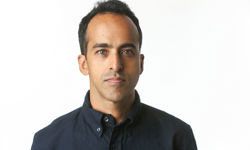Some of the key talking points from the NCTJ conference were:
Practical Journalism Ethics Is Most Important Change Made By NCTJ Says DC Thomson Boss
The introduction of compulsory ethics training for student journalists is the most important change made by the NCTJ, Donald Martin, editor of The Sunday Post, told delegates at the NCTJ Journalism Skills Conference on 28 November.
The panel, chaired by Karen Fowler-Watt of Bournemouth University, also including Ollie Joy, business journalist at CNN, and Sandra Laville, crime correspondent at The Guardian, and Andrew Wilson, head of the journalism foundation at the BBC, discussed the issues around training responsible professionals with an emphasis on the post-Leveson environment.
Donald, who is also an NCTJ board member, said the NCTJ had a responsibility to prove that they believed in the importance of ethics. They needed to provide students with a basis to recognise ethical issues and understand how their stories can impact peoples’ lives. Those trainees should then seek employers that offered continuing training and development as their careers progressed.
He was confident that the industry would have better journalists post-Leveson, a sentiment echoed by Andrew Wilson, who put it to the audience that Leveson was making the industry braver and more determined because of the need to articulate why journalists do what they do.
Sandra Laville spoke about how the Leveson Report had affected her work, giving the example that she was no longer allowed to have an off the record conversation with a police officer because it was “unethical”. She thought journalists had been “cowed” by recent events and stressed the importance having “irreverent voices” in journalism.
She added journalists should be able to hold power to account and “to give a voice to the voiceless”.
Ollie Joy, business journalist for CNN and former BA journalism student at Bournemouth University, said it was important to be taught how to distinguish what was in the public interest and what was of the public interest, adding editors should also be willing to trust their trainees’ story choices.
He concluded: “Is journalism trade or profession? No it's a vocation, a calling - something you care about.”
Journalists Need To Become Digital Natives, Says CNN Vice President
Journalism trainers and practitioners need to embrace the social digital revolution and become “digital natives” the vice president and general manager of CNN told delegates.
Peter Bale was speaking as part of a panel of industry professionals on 27 November.
The panel, chaired by Stephen Jukes, dean of the media school at Bournemouth University, also including Pete Clifton, executive producer of MSN UK, and Liisa Rohumaa, journalism lecturer at Bournemouth University, discussed the key skills needed in digital journalism.
Peter Bale also highlighted the role of social media in providing sources for stories, allowing journalists to provide their audience with quality content from across the world that an audience could trust. He added: “I won't hire people unless I see evidence they are deeply engaged with social media.”
However, Peter Bale stressed it is still the people behind the profiles that are trusted by readers, not the platform itself. He said: "It’s about sharing and being a good source of information, and that's what builds your clout – literally.”
Pete Clifton, an NCTJ-trained journalist, said that “a lot of the core skills are as true today as they have ever been”, such as the ability to tell a story effectively. He said he would still throw a CV in the bin if it contained spelling errors. However, the core skills should be supplemented with technological knowledge, as well as an understanding of the business and economics of the industry.
The panel speaks good spelling, knowledge of good technology, and social media are key skills for journalism.
Liisa Rohumaa who is programme leader for BA (Hons) multimedia journalism at Bournemouth University, said the media were “far too conservative” and called for a more experimental approach to telling stories through digital media. She added there was more scope for the journalists to engage with their audience online, saying the industry needs to concentrate on adopting and adapting technology.
Growing Digital Revenue ‘Light At The End Of The Tunnel’ For Newspapers
The growth in digital revenues for newspapers shows there is light at the end of the tunnel, the managing editor of The Herald and Times Group said.
Tom Thompson was speaking as part of a discussion panel on the economics of journalism.
Tom said The Herald introduced a paywall to its website in January 2012 which has been “extremely successful”. He added there was a bell in the newsroom that rang every time a new subscription was taken out.
The panel, chaired by Andy Bissell from Bournemouth University, with Andy Martin, deputy editor of the Bournmouth Echo and Frank Le Duc, editor of Brighton and Hove News, discussed the ways in which they were using digital content to attract users and create a sustainable economic model for journalism.
The panel were collectively optimistic about the future of the industry, with Tom hoping that The Herald’s digital model would sustain itself within a five-year period.
Andy Martin, who also teaches on NCTJ-accredited courses in Bournemouth, said he had “the most optimistic, positive newsroom in 17 years as a news editor” while acknowledging that the skills levels in the newsroom had “changed beyond all recognition”. Andy said the Echo were still working on adapting and developing their content, referring to their plans to live blog two murder trials simultaneously, providing real-time news content for Echo readers.
Frank Le Duc said if the economic land is to change, it was important to consider two things: “how we provide it and how we can make it financially viable”.
He also stressed the importance of letting reporters have the freedom to go out into the community and find their own stories. He said he was concerned a trend was forming where fewer reporters were out at council meetings and community events.
About the National Council for the Training of Journalists
The NCTJ says: “The NCTJ is the leading journalism training organisation. It accredits courses at education and training providers; offers qualifications which guarantee the skills needed in the workplace for apprentices, entry-level students, and trainees through to senior status; fosters continuing professional development for journalists, and provides a range of services and products relevant to its customers.”










